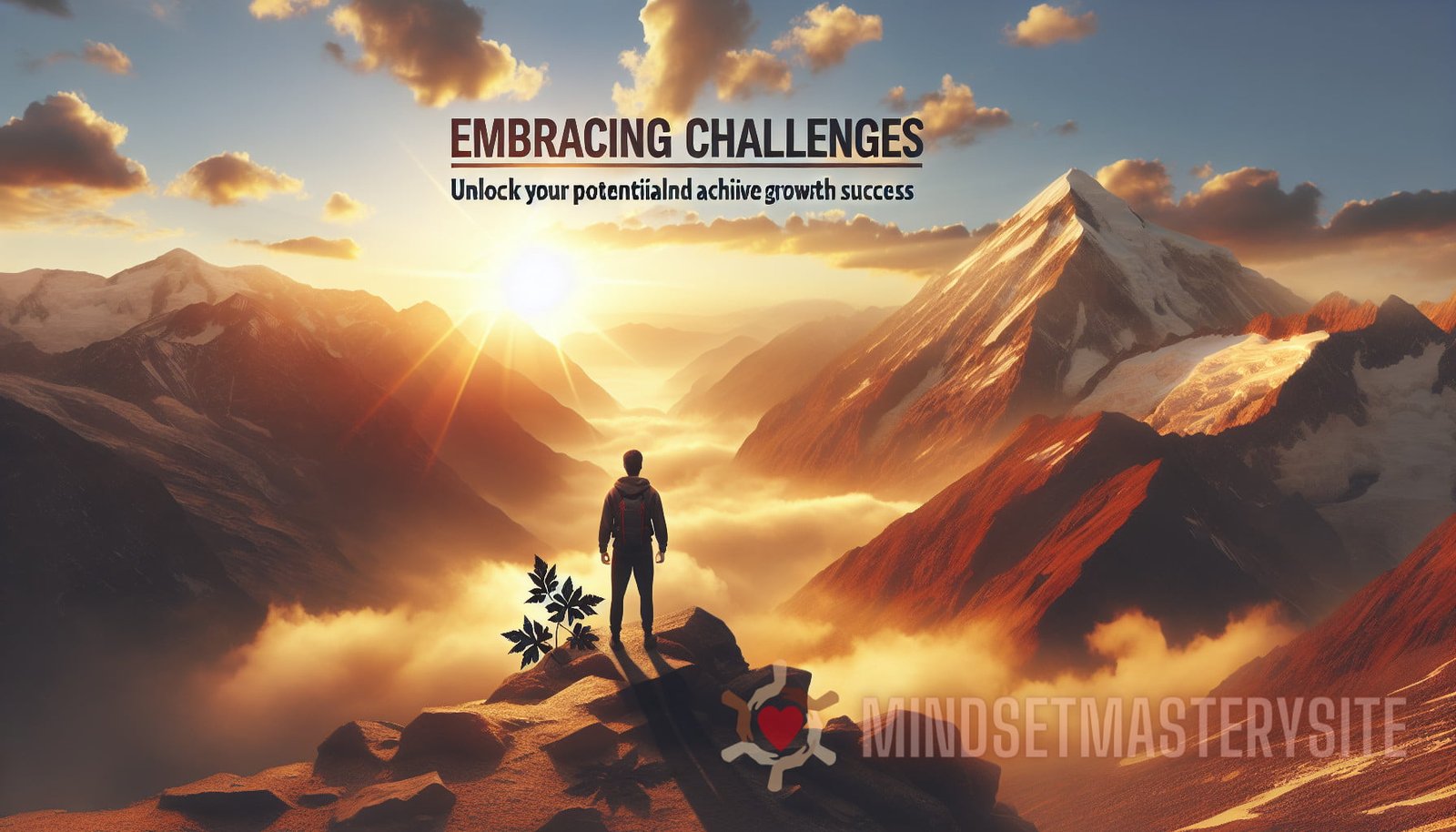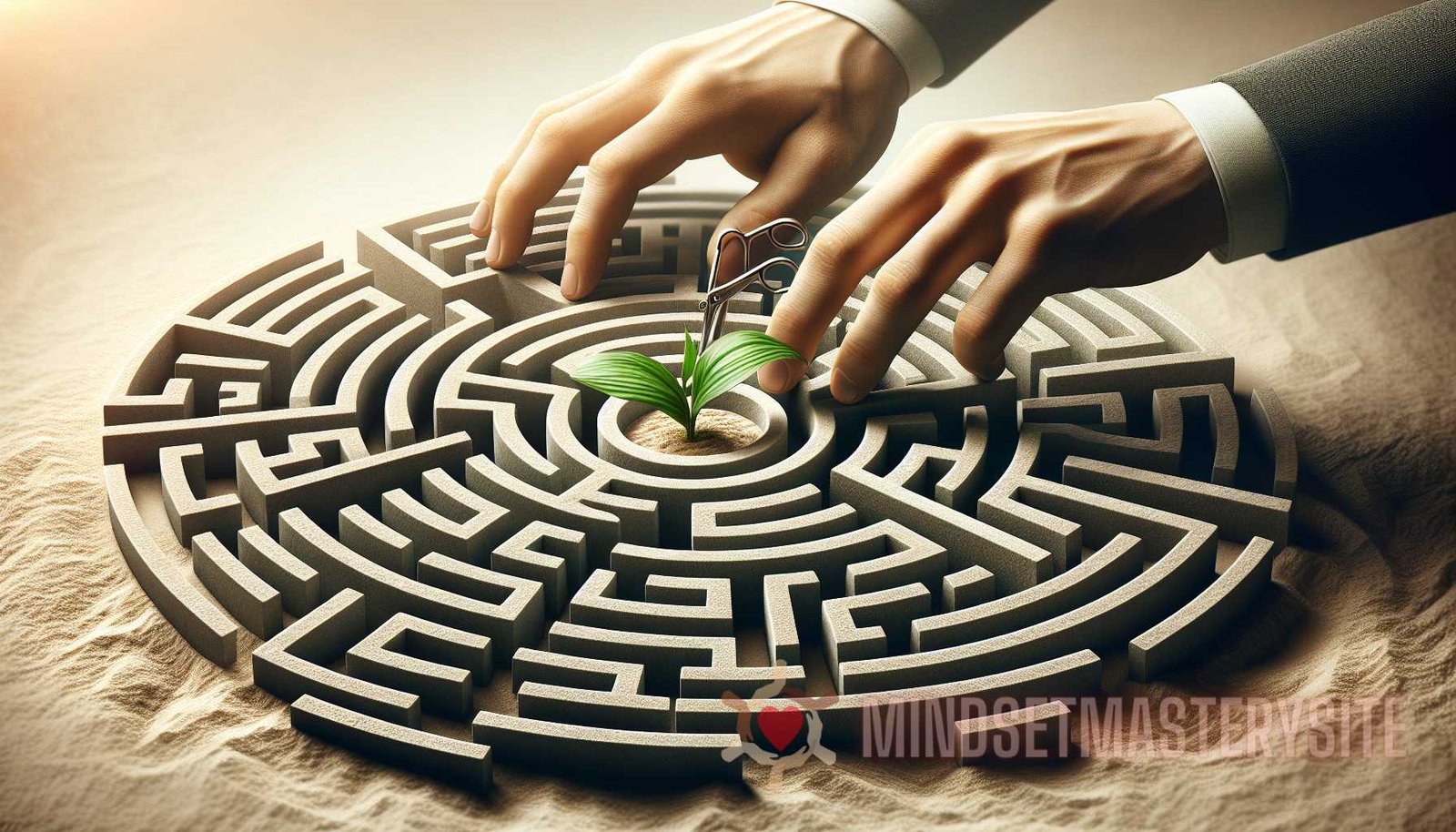Introduction
In today’s rapidly changing world, challenges are a part of life. Whether it’s in our personal or professional lives, we constantly face obstacles that test our abilities and push us out of our comfort zones. However, the way we approach these challenges can make all the difference in determining our success. This is where having a challenge mindset comes into play. A challenge mindset is a growth mindset that allows us to embrace challenges, view them as opportunities for growth, and persevere in the face of adversity. In this guide, we will explore how embracing challenges with a growth mindset can lead to success.
The Power of a Challenge Mindset
A challenge mindset is the belief that our abilities can be developed through dedication and hard work. It is the opposite of a fixed mindset, which assumes that our abilities are fixed and cannot change. When we have a challenge mindset, we are more likely to see challenges as opportunities for growth rather than as threats. This mindset allows us to push our limits, learn from our failures, and ultimately achieve greater success.
Research has shown that individuals with a challenge mindset are more likely to set challenging goals, put in the effort needed to achieve those goals, and bounce back from setbacks. They are also more likely to seek feedback and view criticism as an opportunity for improvement. In contrast, individuals with a fixed mindset tend to avoid challenges, give up easily, and view failure as a reflection of their abilities.
Having a challenge mindset can have a profound impact on various aspects of our lives, including our education, career, relationships, and personal growth. Let’s explore how this mindset can lead to success in each of these areas.
Educational Success
One of the key areas where a challenge mindset can lead to success is education. When students have a challenge mindset, they are more likely to approach their studies with a sense of curiosity and a desire to learn. They are willing to take on difficult tasks, seek help when needed, and persist in the face of setbacks.
Having a challenge mindset can also improve academic performance. Research has shown that students who believe that their intelligence is not fixed and can be developed through effort tend to achieve higher grades and perform better on standardized tests. This is because they are more likely to adopt effective study strategies, such as seeking out challenging tasks, setting specific goals, and using self-regulated learning techniques.
Moreover, a challenge mindset can enhance students’ resilience and ability to cope with stress. Rather than being overwhelmed by setbacks or failures, students with a challenge mindset are more likely to view these experiences as opportunities for growth. They recognize that setbacks are a natural part of the learning process and that failure does not define their abilities.
By embracing challenges and adopting a growth mindset, students can develop a love of learning, build confidence in their abilities, and ultimately achieve greater educational success.

Professional Success
A challenge mindset is also crucial for professional success. In today’s rapidly changing work environment, individuals who are willing to embrace challenges and adapt to new situations are more likely to thrive.
One of the key factors that contribute to professional success is a willingness to learn and continuously improve. When individuals have a challenge mindset, they are more likely to seek out new opportunities for growth, take on challenging tasks, and acquire new skills. This not only enhances their ability to perform their current job well but also positions them for future career opportunities.
Moreover, individuals with a challenge mindset are better equipped to deal with setbacks and failures in the workplace. Instead of giving up or becoming discouraged, they view these experiences as opportunities to learn and grow. They are more likely to bounce back from failures, adapt their strategies, and persevere until they achieve success.
A challenge mindset also fosters innovation and creativity. By approaching problems with an open mind, individuals are more likely to come up with creative solutions and think outside the box. This can lead to new ideas, increased productivity, and a competitive advantage in the workplace.
In addition, a challenge mindset can enhance teamwork and collaboration. Individuals who embrace challenges are more likely to seek out diverse perspectives, engage in constructive dialogue, and learn from others. This creates a culture of continuous learning and improvement within the organization, which can ultimately lead to greater success.
Personal Growth and Relationships
Embracing challenges with a growth mindset can also have a profound impact on personal growth and relationships. When we approach challenges with a positive mindset, we are more likely to take risks, step out of our comfort zones, and pursue our passions.
A challenge mindset can improve our ability to cope with adversity and bounce back from setbacks. Rather than becoming overwhelmed by challenges, individuals with a challenge mindset are more likely to view them as opportunities for growth and learning. This resilience can help us navigate life’s ups and downs and emerge stronger and more confident.
Moreover, a challenge mindset can enhance our relationships with others. When we approach interactions with a growth mindset, we are more likely to listen actively, seek feedback, and view conflicts as opportunities for understanding and growth. This can foster deeper connections, stronger communication, and more meaningful relationships.
The Importance of Developing a Challenge Mindset

Developing a challenge mindset is not always easy, especially if we have been conditioned to believe that our abilities are fixed and cannot change. However, with practice and effort, we can cultivate a challenge mindset and reap the many benefits it offers.
Here are some strategies to help you develop a challenge mindset:
- Shift your mindset: Start by recognizing that your abilities can be developed through effort and hard work. Challenge your fixed mindset and replace it with a growth mindset.
- Embrace challenges: Seek out challenging tasks and projects that will push you out of your comfort zone. Embrace the opportunity to learn and grow.
- View setbacks as opportunities: Instead of viewing setbacks as failures, reframe them as opportunities for learning and improvement. Reflect on what you can learn from the experience and how you can use it to your advantage.
- Seek feedback: Actively seek feedback from others and use it as an opportunity for growth. Ask for specific feedback on your strengths and areas for improvement, and incorporate this feedback into your development.
- Celebrate growth and effort: Focus on your progress and the effort you put into your work. Celebrate small wins and recognize the value of hard work and persistence.
- Surround yourself with growth-minded individuals: Surround yourself with individuals who have a challenge mindset and support your growth. Learn from their experiences and collaborate on shared goals.
By embracing these strategies and cultivating a challenge mindset, you can unlock your full potential, overcome obstacles, and achieve greater success in all areas of your life.
Conclusion
Embracing challenges with a growth mindset is a powerful tool for achieving success in all aspects of life. Whether it’s in education, work, or personal relationships, having a challenge mindset allows us to see obstacles as opportunities and persevere in the face of adversity.
By developing a challenge mindset, we can enhance our ability to learn, grow, and adapt to new situations. We become more resilient, innovative, and collaborative, positioning ourselves for greater success in the ever-changing world.
So, embrace challenges, view them as opportunities for growth, and cultivate a challenge mindset. The possibilities are endless when we believe in our ability to grow and succeed.
External Link: For more information on growth mindset, visit Wikipedia’s page on growth mindset.
Related Articles:


